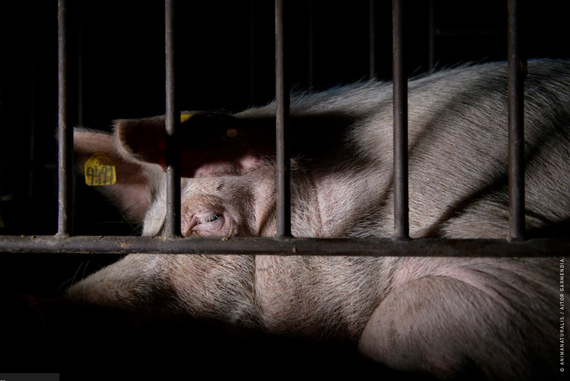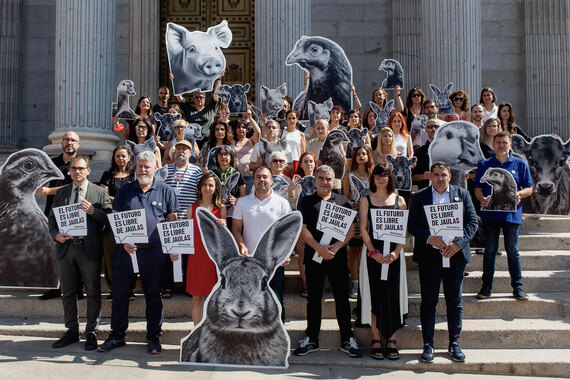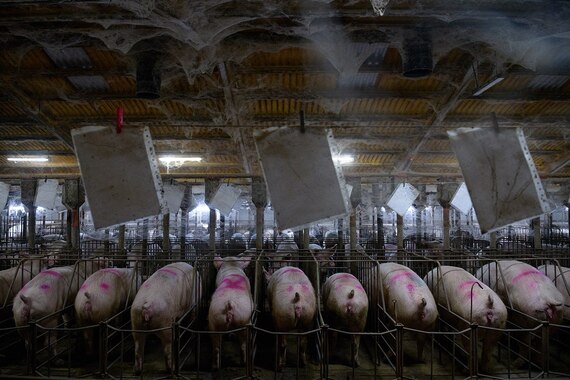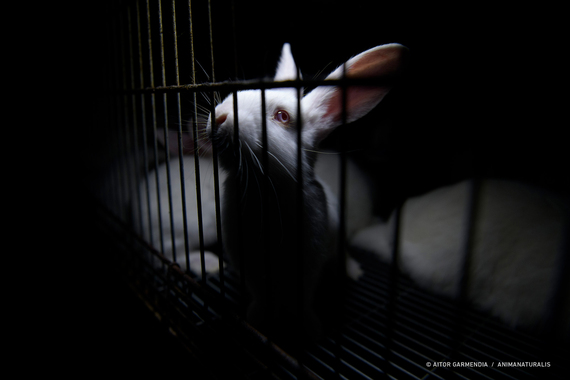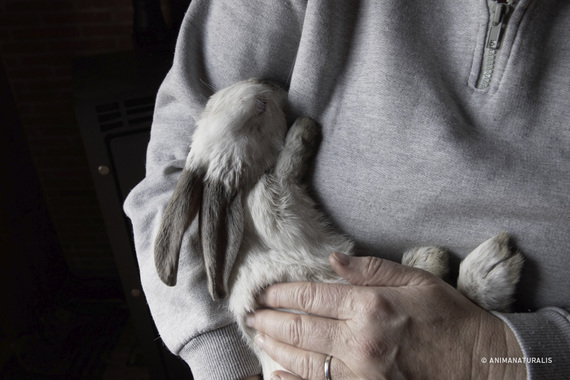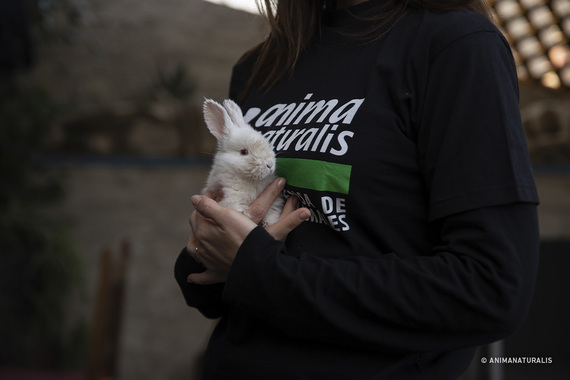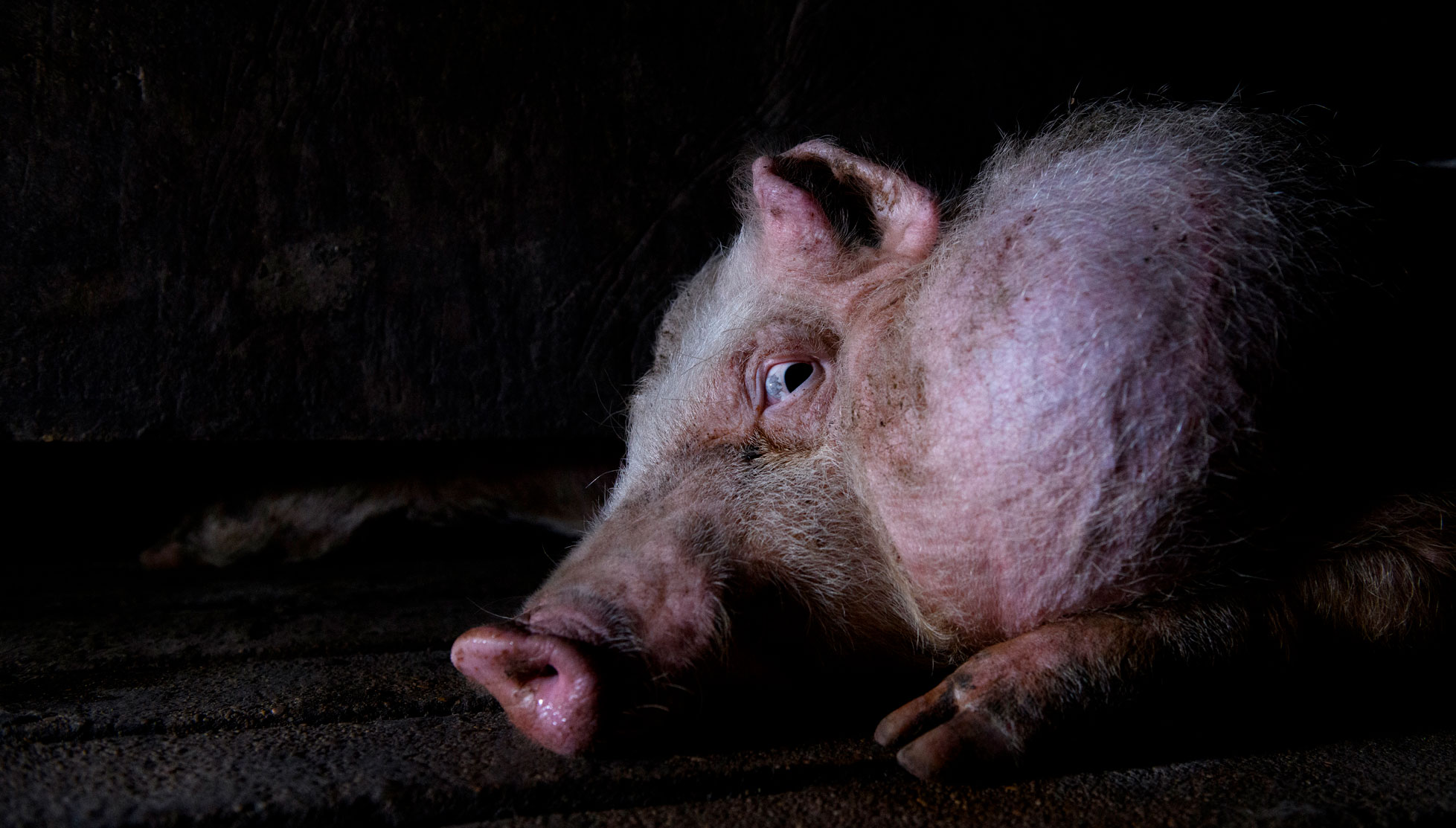The truth of the farms
The number of animals slaughtered during 2020 in Spanish slaughterhouses shot up to 910 million. There are 2.5 million deaths a day, 104,000 every hour, 1,700 every minute and almost 30 every second.
Reaching these figures is only possible given that intensive farming in Spain accounts for 84% of all animal farms for the production of meat, dairy products and eggs. These huge factories subject the animals to movement restrictions, live in a constant regime of extreme overcrowding and prevent the animals from developing their natural behavior.
Millions of animals live, get sick and die in conditions of dirt, stress and exhaustion. This is the reality we want to uncover from farms.
Overcrowding
In industrial farms, animals are treated like machines with which to achieve extremely high production rates, always to the detriment of their well-being.
In Spain, this intensive production system does not stop growing. In 2021, meat production in Spain exceeded the 2020 record and the figure exceeded 8 million tons.
Movement restriction
During gestation and farrowing, 2.5 million sows are confined to individual crates so small they can't even turn around. Breeding sows spend almost half of their lives in these types of cages, forced into incessant breeding cycles. In Sweden all crates for sows (gestation and farrowing crates) have been banned since 1994 and in the UK since 1999.

Illness
According to a report by the National Center for Biotechnology Information (NCBI), around 40% of antibiotics produced in the world are used as animal feed additives.
The excessive consumption of antibiotics through meat and dairy products results in the appearance of bacteria that are increasingly resistant to known treatments. And this is a danger for which humanity is not prepared.

Natural behavior
Cows and bulls are very social animals. However, the calves are separated from their mothers a few hours after birth, and isolated in cages where they cannot develop their normal gregarious behavior or have contact with other calves or with their own mother.
In general, all animals deprived of the opportunity to develop their natural behaviors have a high incidence of stereotypies, considered an indicator of poor welfare.
We demand immediately
We propose the end of factory farms. We can do without animal exploitation and we work to discover the cruel reality that the meat, egg and milk industry hides from us.
With special urgency, we demand:
That the regulations be modified so that the installations of the farms allow the animals to develop their natural behavior without restrictions.
Cage ban on all farms, regardless of species or production cycle.
Prohibition of tail and beak mutilations, removal of tusks and castrations without anesthesia.
Immediate ban on the live chick crushing system as a system for discarding males on farms.
Require a European label that informs about the production system to which animals for meat, dairy products and derivatives are subjected, thus avoiding consumer fraud.
Require own animal welfare legislation for species that do not have it, such as rabbits, turkeys and calves.
Veterinary care focused on the welfare of each animal as an individual and not only on ensuring the survival and productivity of the group on the farm.
The feeding of animals on farms should not only take into account fattening or survival, but the correct nutrition of the animals. It is impossible to talk about well-being if they are not offered balanced and adequate food for their organisms, not just a hypercaloric feed.
The European Commission plans to betray 1.4 million citizens by abandoning the cage ban
20 octubre 2025
A leaked draft of the European Commission’s 2026 Work Programme reveals an intention to omit the long-promised legislative proposal to end the use of cages in farming. AnimaNaturalis is joining the End the Cage Age coalition to mobilize letters and mass actions ahead of the programme’s official adoption on October 21.
Activists and politicians demand a Cage-Free Europe
25 junio 2025
This morning, AnimaNaturalis and its allies from the End The Cage Age coalition gathered dozens of activists and parliamentarians in front of the Congress of Deputies to demand authorities immediately fulfill Europe’s promise to ban cages on farms.
New investigation puts Spain at the epicenter of Europe's megafarm expansion
13 junio 2025
New report has uncovered that the EU hosts an astonishing 22,263 industrial chicken and pig farms, containing over 516 million animals under intensive livestock farming conditions. Despite this, European authorities advocate for increasing farm animal numbers. But what would this expansion mean for animals, human health, and environmental impact?
AnimaNaturalis Photograph Featured in 'Silent Suffering' Exhibition at the European Parliament
03 octubre 2024
Millions of animals across Europe suffer in silence as animal welfare laws continue to fall short. A new photo exhibition at the European Parliament, featuring AnimaNaturalis, reveals the urgent need to reform these regulations.
Letter to Carlitos, the brave rabbit
20 enero 2024
The adopter of Carlitos and Zuri, two rabbits rescued from the meat industry by AnimaNaturalis, expresses in a farewell letter how much their time together meant to her family.
AnimaNaturalis rescues six rabbits from darkness
10 diciembre 2023
One of our researchers reveals poignant details of a nighttime operation that freed six rabbits from the terrible conditions in which they lived. Amidst the harsh reality faced by animals on meat farms in Spain, AnimaNaturalis has managed to bring a ray of hope to these six lives.
Support our campaign
Your contribution will allow us to continue this campaign until the last consequences.














